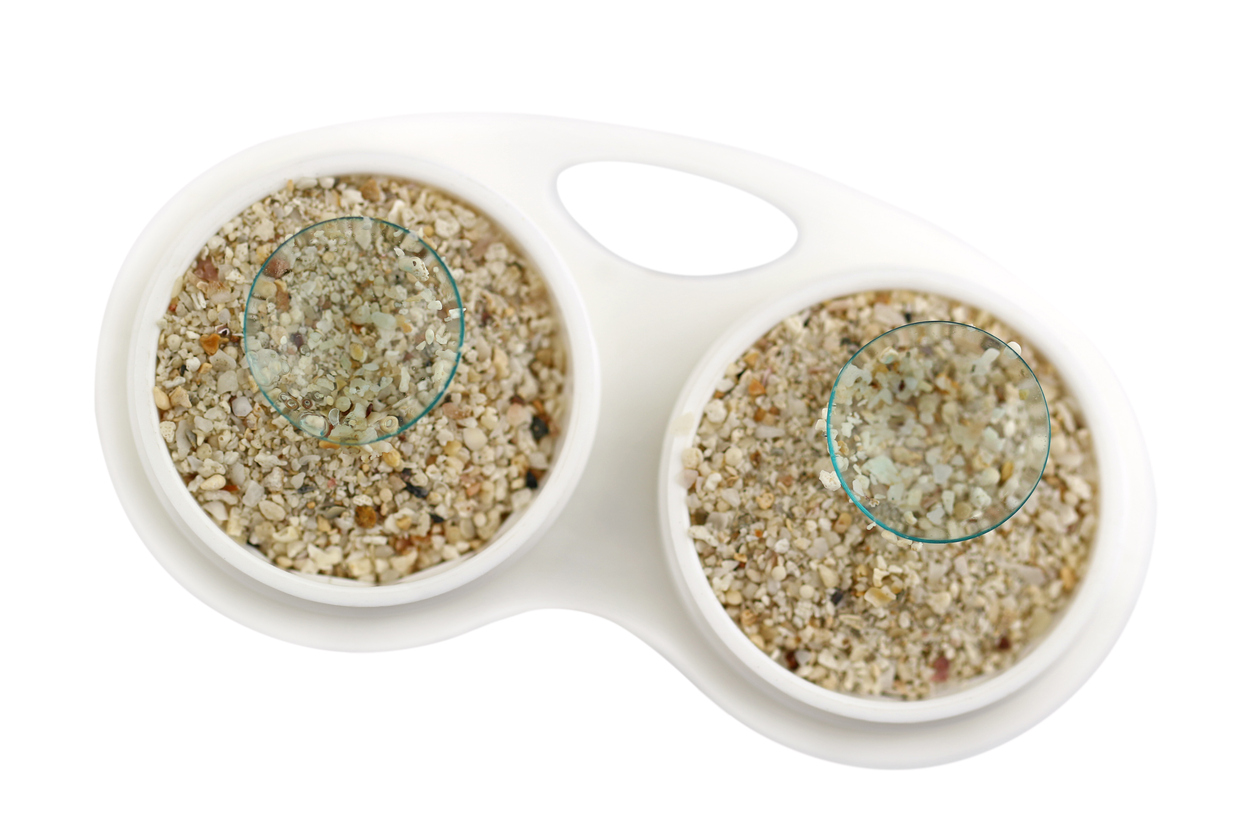Wearing contact lenses seems like the easiest thing in the world, until you get your first eye infection. Even the most careful contact lens users are incapable of being 100% safe. There’s no way to be sure that all bacteria have been completely removed from their lenses. And, these are objects that they physically place directly onto their cornea every day.
In reality, recent research by the Center for Disease Control suggests that approximately 99% of all contact users practice at least one behavior that puts them at risk of developing an eye infection.
The Problem With Eye Infections
If you catch an eye infection early on, they are usually pretty harmless. Redness, irritation, and discharge are common symptoms. Most contact users with less-than-stellar habits are no stranger to minor experiences of these symptoms. Infection or not, if you notice these symptoms, you should immediately stop wearing your contacts. If they persist after a couple of hours, then it is time to make an appointment with your eye doctor.
Doctor’s Orders
Once your ophthalmologist diagnoses the infection, they can create a treatment plan based on the origin of the infection. Infections can be either fungal and viral infections. But, bacterial infections are most common among contact lens users.
To start, your doctor will advise not wearing your contacts for several weeks. Depending on the infection type, they will prescribe medication. For bacterial infections, this is usually in the form of antibiotic eye drops.
These infections are highly treatable. However, the fact that the symptoms mimic those of poor contact care means that a lot of people don’t recognize the infection until it is much more advanced.
The Most Dangerous Culprit
Acanthamoeba keratitis is the infection most commonly associated with poor contact lens hygiene. Left unchecked, it can cause severe damage. Characterized by increasingly intense pain, it directly attacks the cornea, the clear layer of tissue protecting your eye. Left untreated, patients can expect scarring, which can cause blindness in severe cases. Keratitis is typically caused when contacts come into contact with infected water. Here’s a good reason why you should avoid using water to clean your contacts. And don’t shower with contacts in either!
Practicing Proper Hygiene
Unfortunately, keratitis is only one of a host of infections that can affect your eyes if we don’t practice proper contact lens hygiene. These are the most important tips to follow to protect yourself from a debilitating eye infection.
- Always wash your hands before touching your eyes or your lenses. Given the way most of us manipulate our lenses, it is especially important that you scrub under your fingernails.
- Use a hydrogen peroxide-based contact lens solution. Although these aren’t always an everyday solution due to their specific soaking instructions, using a high-quality solution every day and doing a weekly deep-cleaning can help reduce bacteria on your lenses.
- Never re-use solution. Don’t even top-off the existing solution. All of the bacteria from your last usage now call that solution home.
- Never sleep in your contacts.
- Do not ever wear your contacts beyond their intended usage.
- Resist showering or swimming while wearing your contacts.
Solutions to Contact Lens Solutions
Proper contact lens hygiene isn’t a thirty-second process every day. If you’re doing it correctly, you can expect to spend about two minutes washing your hands twice a day and an extra minute once a day cleaning your contacts before putting them into a fresh case of solution. To streamline the process, you can switch to daily lenses. In fact, daily lenses are suggested for long-time contact lens wearers who are beginning to suffer from dry eye. However, there is a more permanent solution: Lasik eye surgery.
At Advanced Eye Medical, Dr. Ghosheh and his team use blade-free Lasik surgery to provide patients with a safe alternative to a lifetime of corrective eyewear. Investing in Lasik doesn’t just streamline your everyday routine; it actively reduces the bacteria being introduced to your eyes daily.

